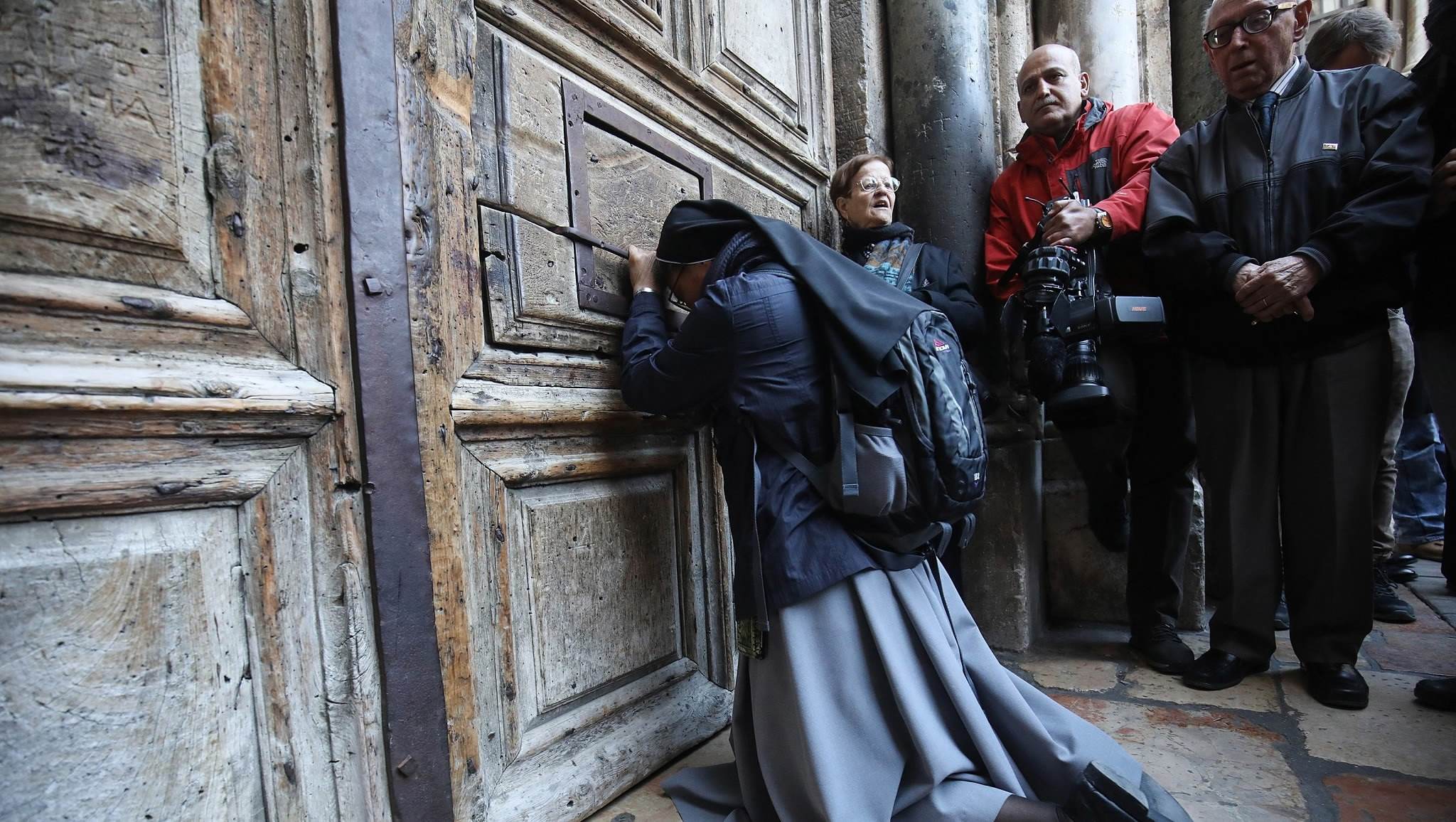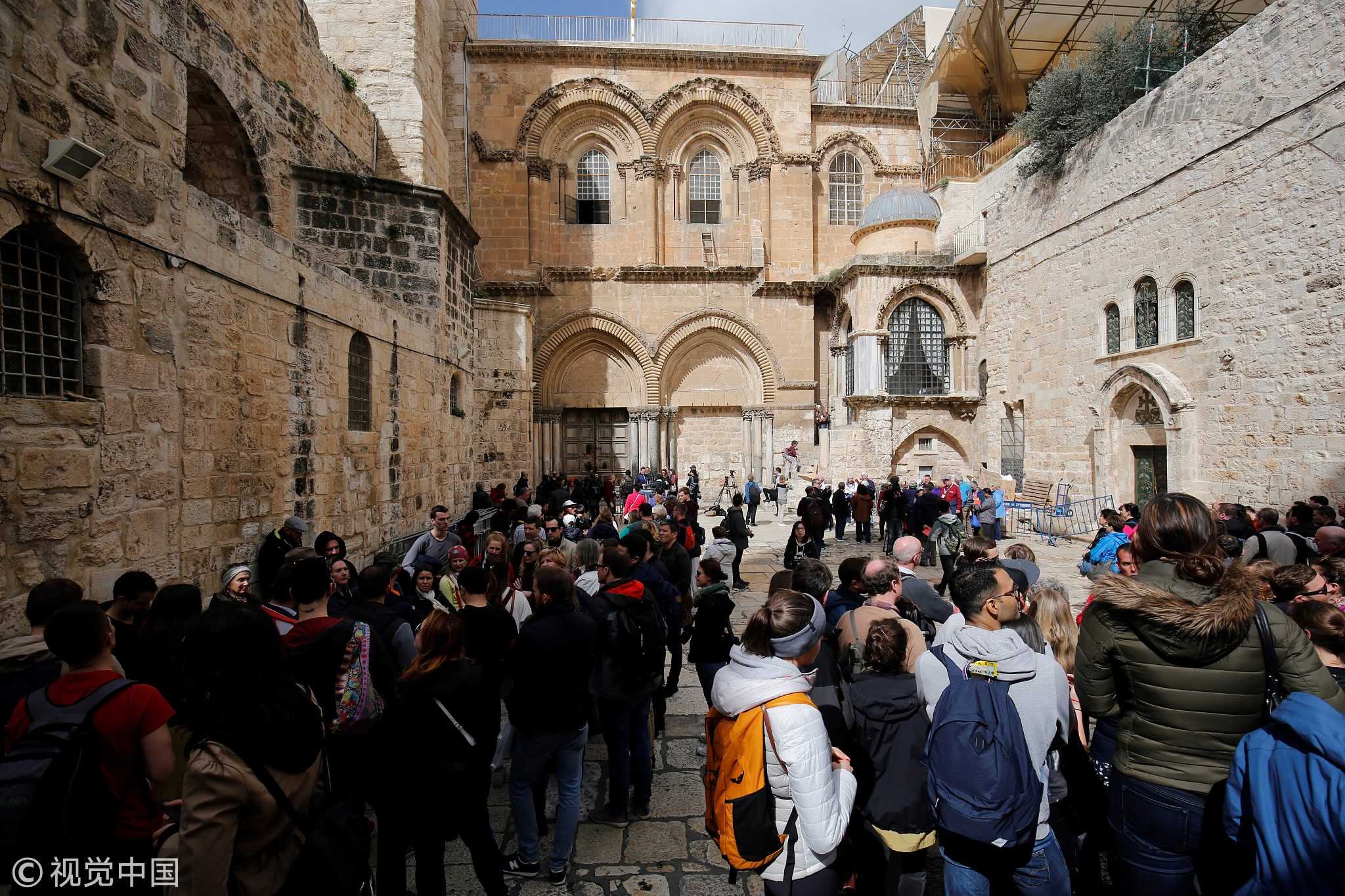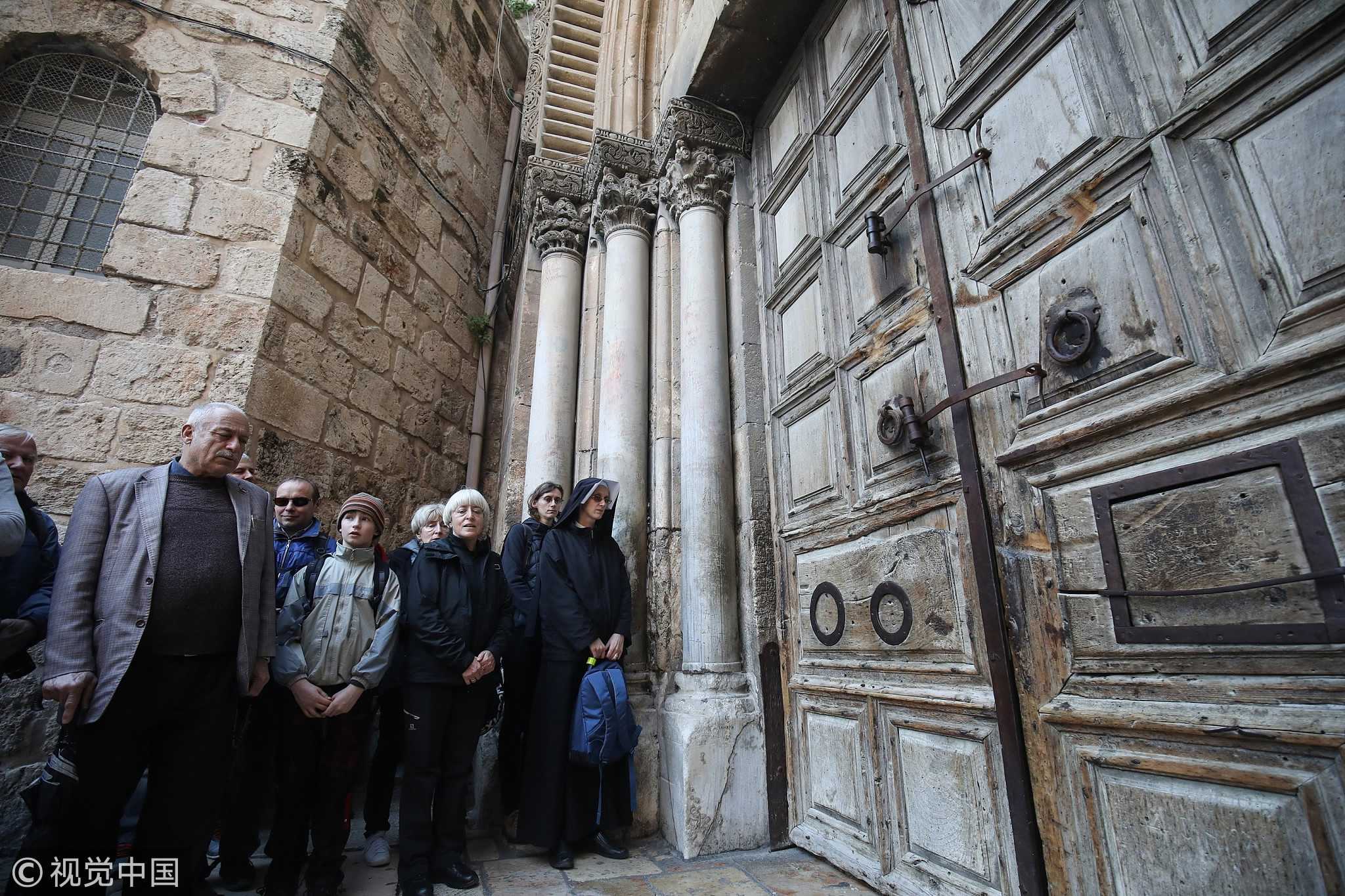
World
13:13, 28-Feb-2018
Church of Holy Sepulchre re-opens as Israel halts tax, property plans
By Sim Sim Wissgott

Jerusalem's Church of the Holy Sepulchre reopened on Wednesday, three days after Christian leaders shut it in a dispute over a new tax policy and a land expropriation bill.
At 4:00 a.m. local time, the heavy wooden doors of the church in Jerusalem’s Old City were opened and pilgrims were allowed in for the first time since Sunday.
The announcement that the church would reopen came late Tuesday, after an intervention by Israeli Prime Minister Benjamin Netanyahu’s office in the tax and land dispute.

Pilgrims wait in front of the closed Church of the Holy Sepulchre in Jerusalem, February 27, 2018. /VCG Photo
Pilgrims wait in front of the closed Church of the Holy Sepulchre in Jerusalem, February 27, 2018. /VCG Photo
Believed to stand at the site where Jesus was crucified and buried, the Church of the Holy Sepulchre is a key pilgrimage site for Christians and beloved tourist spot.
In a rare move however, church leaders on Sunday shut its doors to protest plans by Jerusalem city authorities to tax church-owned property, until now exempt, as well as a proposed Israeli law that they say would allow church property to be expropriated.
Roman Catholic, Greek Orthodox and Armenian leaders share custody of the church.
To end the stalemate, Netanyahu’s office on Tuesday announced that a committee led Israeli Regional Cooperation Minister Tzachi Hanegbi will hold talks with church representatives on the tax dispute and the issue of land sales.
Until those matters were resolved, the Jerusalem Municipality will suspend any tax collection and the proposed property bill will also be put on hold, Netanyahu’s office said.
Jerusalem Mayor Nir Barkat says the churches owe the city 650 million shekels (186 million US dollars) in property taxes. Houses of worship are exempt from tax but the churches are major landowners in Jerusalem with, among other things, office space and a hotel to their name.
The property bill, meanwhile, would allow Israel to expropriate land sold by the churches to private developers, in return for compensation, in a move reportedly meant to protect homeowners.

People gather outside the closed Church of the Holy Sepulchre, in the Old City of Jerusalem, February 27, 2018. /VCG Photo
People gather outside the closed Church of the Holy Sepulchre, in the Old City of Jerusalem, February 27, 2018. /VCG Photo
The churches say the new tax policy would prevent them from doing their work, including providing social services to people in need, while the property bill would make it harder for them to find buyers for land they plan to sell, removing a key source of income for them.
The property and tax disputes are playing out against a backdrop of Israeli and Palestinian tensions, and as both sides battle for land in a city they both claim as their capital.
Christians in Jerusalem are mainly Palestinians and Arab Israelis.
The three-day closure of the Church of the Holy Sepulchre was the longest in almost three decades, leaving pilgrims and tourists stranded outside the large wooden doors.
In 1990, Christian sites were closed for one day to protest Jewish settlements near the church.
In 1999, they were shut again for two days in response to the planned construction of a mosque near Nazareth's Church of the Annunciation, where Christians believe Mary was told by the Angel Gabriel that she would give birth to Jesus.
(With input from agencies)
7129km

SITEMAP
Copyright © 2018 CGTN. Beijing ICP prepared NO.16065310-3
Copyright © 2018 CGTN. Beijing ICP prepared NO.16065310-3